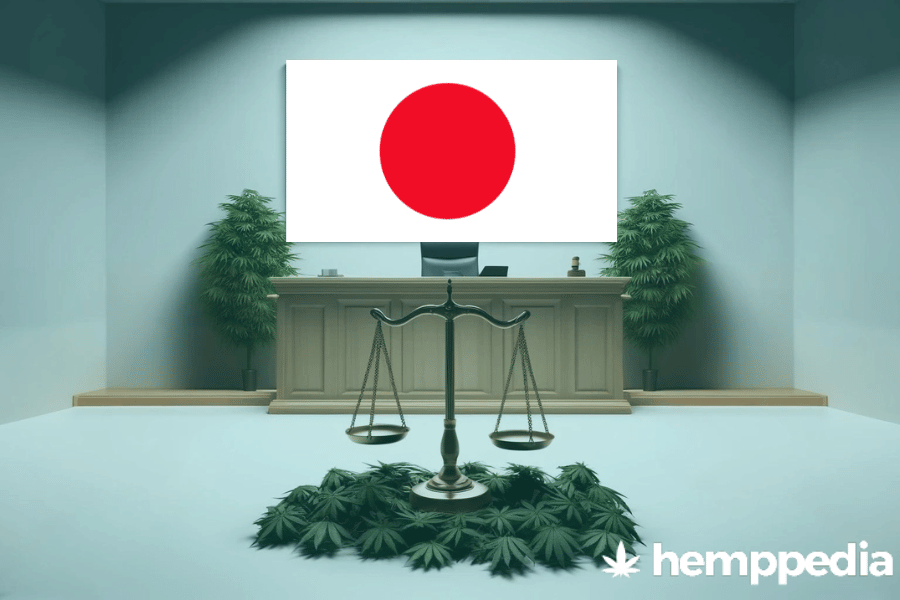Is Cannabis Legal in Japan?
TL;DR
Japan has some of the strictest cannabis laws in the world. Recreational and medical use of both THC and CBD is strictly prohibited with severe penalties for violators, including long prison sentences. The table below provides a quick glance at the current legal situation:
| Recreational Use | Medical Use | |
|---|---|---|
| THC | Illegal | Illegal |
| CBD | Illegal | Illegal |
Introduction
Understanding the legal dynamics of cannabis across the globe has become imperative, particularly against the backdrop of the global trend towards legalization, decriminalization, or stricter controls of the substance. This piece focuses on the stringent cannabis legislation in Japan.
Overview of Cannabis Legislation
While various regions have embarked on different paths – from full legalization to mere decriminalization or medical use of cannabis, Japan remains adamantly unsympathetic towards any form of cannabis use. ‘Legalization’ implies the removal of all state-level criminal and civil penalties for an act. ‘Decriminalization’ is the lessening of such penalties without full legalization. ‘Medical use’ refers to the use of cannabis to treat ailments, while ‘recreational use’ entails the use of cannabis freely for personal pleasure without any therapeutic justification.
State-Specific Legal Details
Legal Status
In Japan, both the recreational and medical usage of cannabis is strictly illegal. The Cannabis Control Law, enacted in 1948, prohibits the possession and transfer of cannabis, with violation often leading to stringent penalties, including imprisonment (source).
Historical Context
The cultivation of cannabis for industrial purposes was extensive in Japan until the mid-20th century. However, influenced by international drug control treaties and foreign pressures, Japan enacted the Cannabis Control Law sharply contrasting its long history of cannabis cultivation.
Possession and Use
Cannabis possession, let alone use, attracts severe legal penalties in Japan. Penalties include up to five years imprisonment for personal use and seven years for sale and cultivation, irrespective of the age of the possession (source).
Cultivation and Distribution
The cultivation and distribution of cannabis are both heavily scrutinized and illegal, with very few exceptions for certain industrial and academic purposes which require stringent licensing and oversight.
Enforcement and Penalties
Penalties are harsh, with up to five years imprisonment for personal possession and usage and up to seven years for sale, cultivation, and transport. Japan’s drug laws are notoriously strict and are enforced rigorously.
Medical Cannabis
Neither THC nor CBD products are legal for medical use. Despite the global trend of using cannabis for therapeutic uses, Japan has curbed any movement towards the legalization of medical cannabis citing public health concerns.
Social and Economic Impact
Public health considerations, alongside historical and cultural contexts, have shaped Japan’s attitudes and laws regarding cannabis. The draconian laws have effectively minimized cannabis usage, with less than 0.1% of the population reported to use it.
Comparative Analysis
Comparatively, Japan’s cannabis laws stand in stark contrast to the leniency found in places such as California and Canada, and even against Asian counterparts like Thailand and South Korea who have begun to recognize the medical use of cannabis.
Future Outlook and Ongoing Debates
Despite rapidly evolving global perceptions towards cannabis, public opinion in Japan remains staunchly opposed to legalization. The government also appears unwavering in its stance, with no changes on the horizon.
Conclusion
In conclusion, Japan remains averse to any form of cannabis usage – recreational or medicinal. While many regions worldwide are shifting their stance on cannabis, Japan’s stringent laws remain unyielding. Only time will tell whether Japan concedes to the global trend or continues its hardline stance against cannabis.





